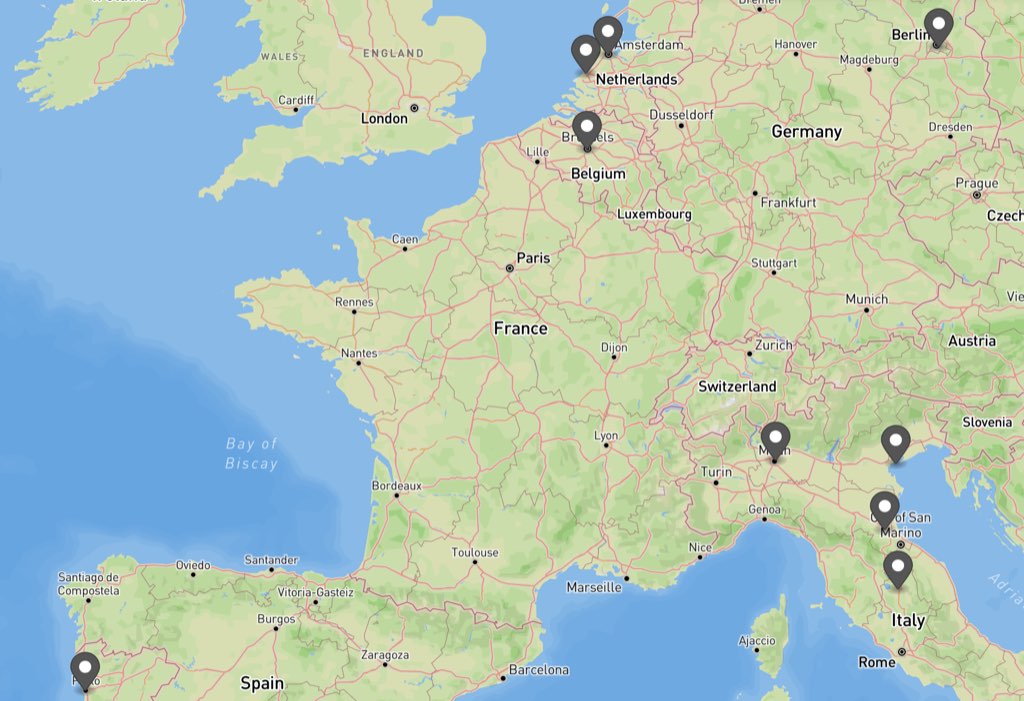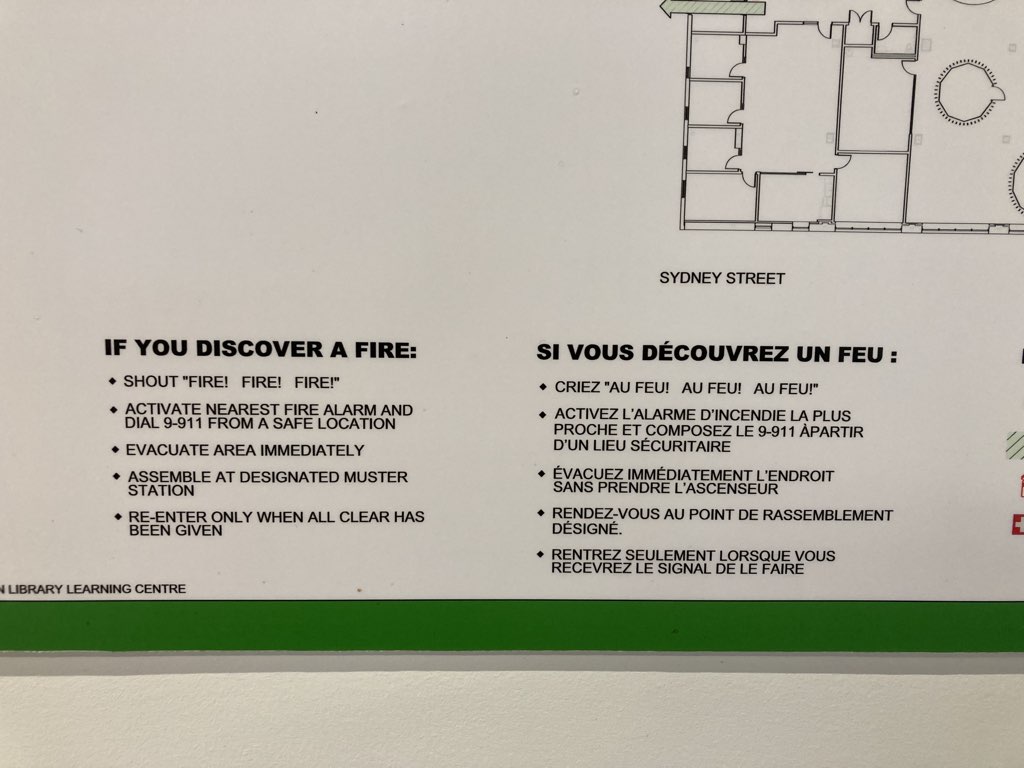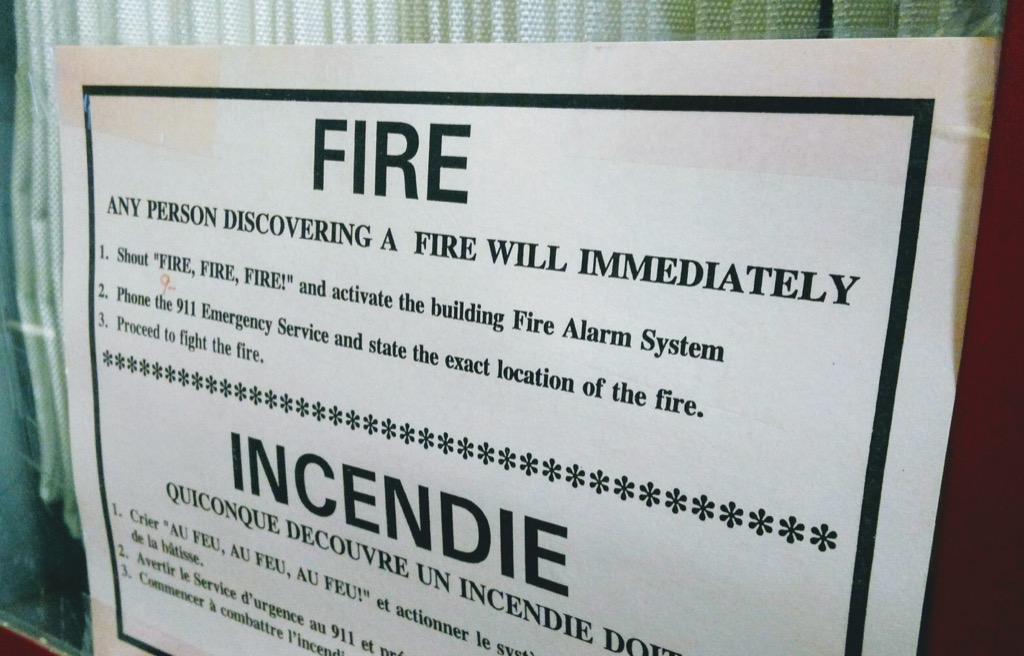Canadian Tire has now completely switched over to digital price tags, wireless e-ink shelf displays that show the item name, price, and barcode.
Under the hood I imagine this both saves hundreds of hours of staff time, and involves running a complicated hundred-thousand-device wireless network in every store.
In the store today I noticed a new feature, one that transformed the shopping experience.
The Achilles heel of Canadian Tire is that staff are never available when you need them (by contrast, at Home Hardware they are always available, and often ask if you need help). This means that finding things can require multiple frustrating waits to get directions.
Until now.
The Canadian Tire mobile app now supports both real-time inventory and information about which aisle the product is on. What’s more, if you tap a button, the digital shelf tag will flag its bright LED to help you locate the product precisely. It’s really rather magic-seeming.
I had coffee with Guy, in Basel, in late 2010: he was there scouting for a move, and his modus operandi was to scout for interesting agglomerations of coffee shops, bookstores, etc., and then look for places to live in an area radiating outward. This is akin to my advice to university students: find the interesting professors and take their courses, no matter the subject. Context over content.
In this vein, I was drawn to a list of here of nine shops that stock Robida magazine. Robida is fascinating and weird and rich in all the right ways; I reason that any shop that carries it will be similarly fascinating and weird and rich. Evidence from browsing websites suggests this is the case.
And so a plan: visit all nine. One could do worse for the spine of an European itinerary.
Here are the coordinates:
- Zabrieskie (Reichenberger Str. 150, Berlin)
- San Serriffe (Sint Annenstraat 30, Amsterdam)
- Rile (62 Rue des Commerçants, Brussels)
- Page Not Found (Boekhorststraat 126-128, Den Haag)
- Materia Prima (Rua Miguel Bombarda 232, Porto)
- Bruno (Dorsoduro 2729, Venezia)
- Edicola 518 (Via Sant’Ercolano 42/A, Perugia)
- NOI (Via delle Leghe 18, Milano)
- Frabs Magazines (Via dei Filergiti 1, Forli)
As a service to the magazine-loving flaneur, I ensured that all of the shops are in OpenStreetMap (here’s a query to get them all).

We went to Haru the other night, the Korean fried chicken joint on Grafton Street in the old Downtown Deli space. The highlight for me was the “grapefruitade,” which is everything a fancy non-alcoholic drink should be: fizzy, tart, refreshing. I’d go back just for that.
David Kessler has a free online series, Mother’s Day Grief that runs Tuesday, May 9. It’s easy to forget, on days like Mother’s Day, that what some greet with joy and celebration, others greet as a reminder of what they’ve lost.
From Wikipedia:
David Kessler is an author, public speaker, and death and grieving expert. He has published many books, including two co-written with the psychiatrist Elisabeth Kübler-Ross: Life Lessons: Two Experts on Death and Dying Teach Us About the Mysteries of Life and Living, and On Grief & Grieving: Finding the Meaning of Grief Through the Five Stages of Grief.
From an interview in Outsider about the Robida Collective project The Village as House:
Vse te dejavnosti so neke vrste poskusi premikov, ki včasih tudi ne uspejo (nasmeh). Naši ideali včasih ne ustrezajo realnosti. A prav to nam omogoča ta prostor: svoboden pristop. Zdi se mi, da nam daje odprtost za ideje, ki drugje morda ne bi imele potenciala, lahko jih delimo s prijatelji, s katerimi sanjamo naprej in prav te ideje so lahko tisti mali koraki k spremembi.
Translated:
All these activities are some kind of attempts at movements, which sometimes also fail (smile) . Our ideals sometimes do not correspond to reality. But that’s exactly what this space allows us: a free approach. It seems to me that it gives us an openness to ideas that might not have potential elsewhere, we can share them with friends, with whom we dream forward, and it is these ideas that can be those small steps towards change.
The Village as House, and Robida in general, are rich veins of interest to explore.
A 30 year old tree, felled by Hurricane Fiona, lives another day as a coffee table at The Shed.
When The Shed took on the coffee stand at the new Charlottetown Library, they closed the original location, in the old Legion on Pownal Street, to focus on the new project.
After almost a year, that original location reopened this week. The seating’s a bit tighter than it was before, as the space is now as much roastery as café. But it’s as special a place as it ever was, and I enjoyed my first hand brew of 2023 yesterday as a gaggle of curious tourists milled around me.
The Shed OG is open 9:30 a.m. to 4:30 p.m., Monday through Saturday, at 99 Pownal Street.
As I am a lover of post offices, especially ones overseas, I mailed myself a postcard home from France. It arrived yesterday, 15 days after I mailed it from the post office at 30 Rue de Reuilly in Paris.
I spent 15 minutes in the post office, as it took the clerks some time to find the appropriate stamp to mail a postcard to Canada; I was eventually given a €1.80 stamp featuring Marcel Marceau.
The postcard itself was one I bought at the Rougier & Plé shop near Notre Dame, a small biography of Oscar Wilde (13 Rue des Beaux Arts, Wilde’s last home in Paris, was a 10 minute walk away).
Thus Wilde was visited upon Charlottetown for the second time in 141 years.
“Do you like pineapple?”, Lisa asked me this morning, as we were sitting on the couch, in the peace between breakfast and the school run.
Lisa and I met 516 days ago. Today was the day we broached pineapple.
My friends Bill and Michelle are both the same age as I am, born the same season in the same year. They’ve been together for a long time. They know whether the other likes pineapple or not. They’ve known for awhile, I’m certain.
Many—most—of my friends and familiars are in well-established, finely-honed partnerships. I am in what is, relatively speaking, the early stages of one. The pre-pineapple, and now-just-post-pineapple, stage.
I was in the public library yesterday and noticed the instructions for what to do if you discover a fire:

Those instructions seemed familiar, like something I’d noticed before.
I had noticed before, in 2019, in the Queen Charlotte Armoury:

The difference: in the library we’re told to evacuate area immediately, whereas in the armoury proceed to fight the fire.
The gift—flowing from the tragedy, but, yes, also the gift—of being allowed to reinvent myself at my halfway point is that I get to choose what to do in case of fire.
My life with Catherine worked. We reached the pineapple stage, and well-beyond (our last big summer together was spent, in part, in Europe, crossing paths with the selfsame Bill and Michelle, enjoying the easy back-and-forth that well-honed couples can together). We bought and renovated two houses. We raised a child together. We travelled far and wide. We stayed together through many thicks and many thins.
The interior landscape of our relationship, though—the part that nobody ever sees, the layers much, much deeper than pineapple—had an upper limit; it wasn’t shallow, but neither was it vulnerably deep; it was more “evacuate area immediately” than “proceed to fight the fire.”
We were younger, of course, and that explains some of it. But we were both afraid. Afraid to turn to truly face each other, to risk everything by finding our way to a deeper honesty, a more profound vulnerability. I write that with sadness for realizing the terrain we didn’t cover, for the parts of each other we never showed ourselves. Sadness for knowing it’s too late, that I was too timid.
The interior landscape of my relationship with Lisa—the important part, the part of being alive with someone else that’s about being alive—is where the growing edge of our coupling is found. This part—the part that nobody ever sees—this is where we get to decide to “proceed to fight the fire.” Where we turn toward each other when our impulses are to turn away. Where we walk through the discomfort of candour to get to the deeper connection that’s on the other side.
This sub-pineapple part of being together is frightening, thrilling, unfamiliar new territory for me. I don’t know the way. We are finding the way together.
I wish I knew this as a younger man. I am enormously grateful to be learning it now.
Yes, I do like pineapple.
 I am
I am